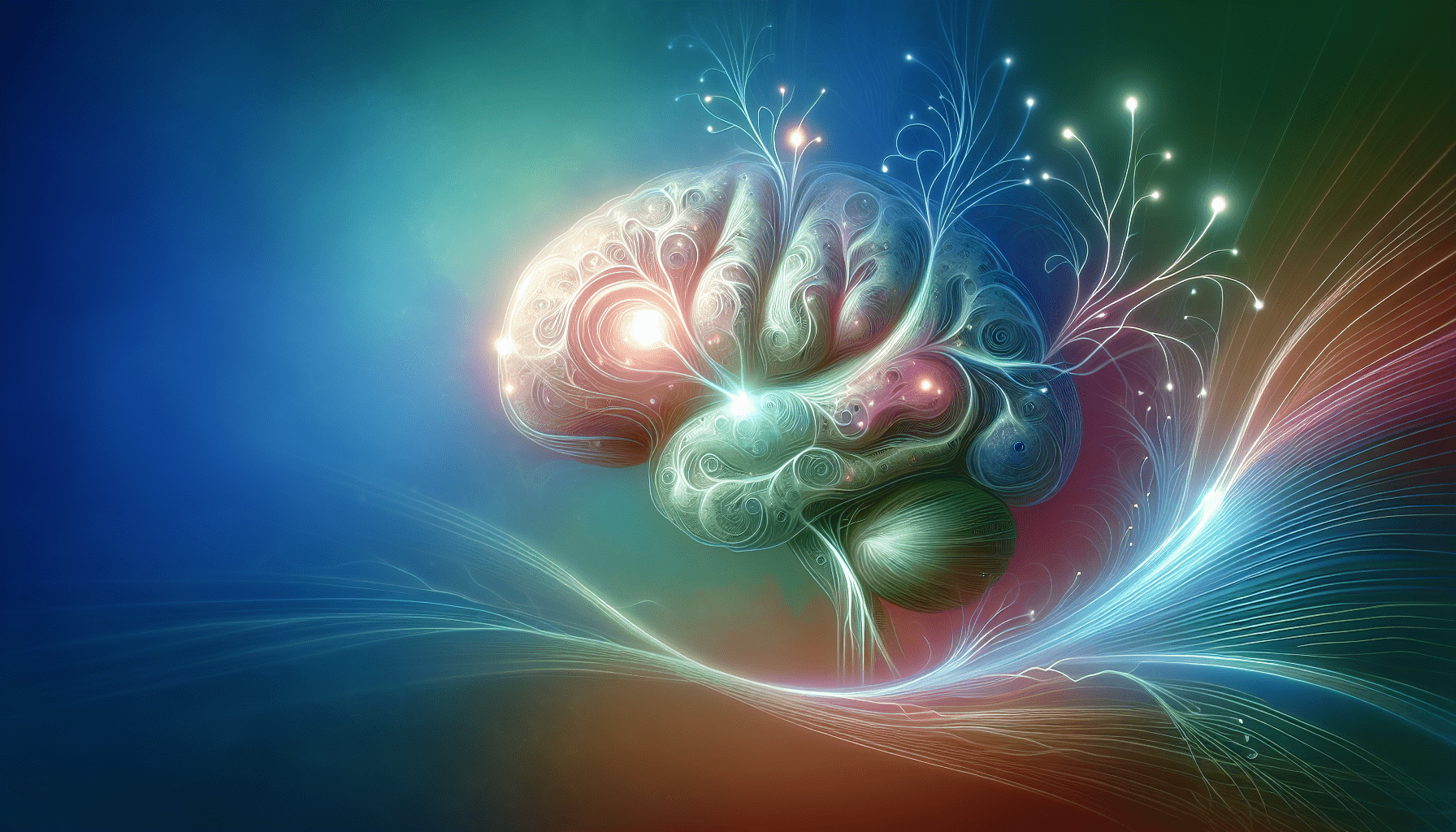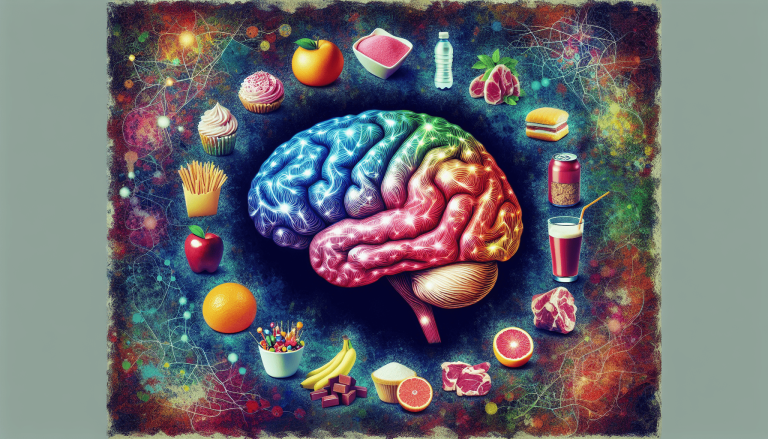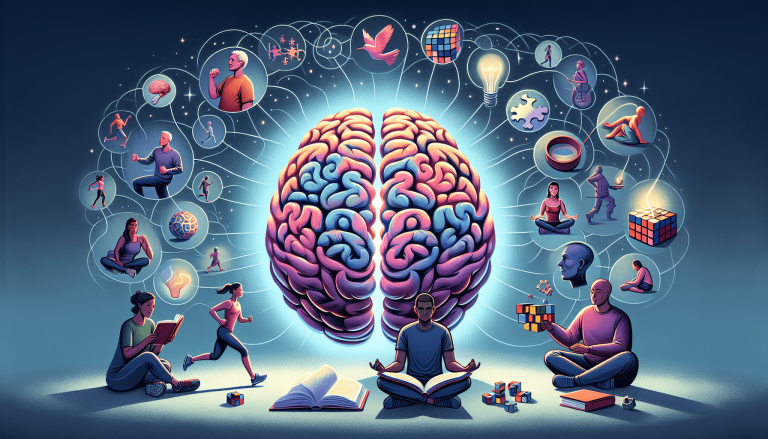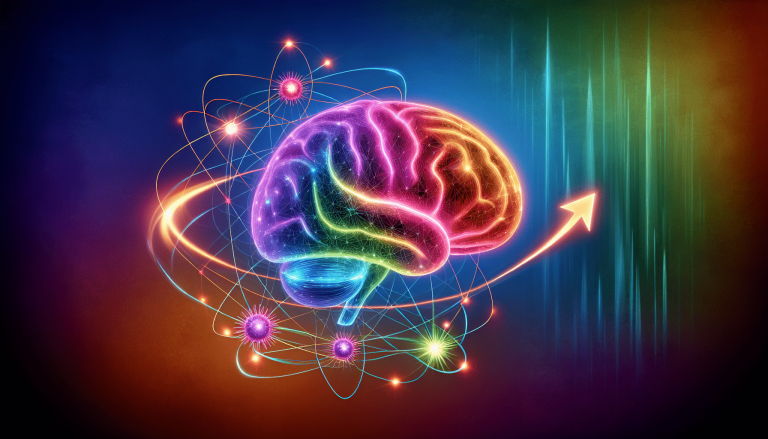How To Regain Memory
In the article “How To Regain Memory?” you’ll uncover practical and gentle strategies to help boost and reclaim your memory. Designed to seamlessly fit into your lifestyle, these tips and techniques range from simple daily habits to engaging brain-boosting activities. Whether you’re dealing with the normal forgetfulness that comes with age or wanting to sharpen your cognitive skills, this guide is here to support you with friendly and accessible advice. Have you ever walked into a room only to forget why you went there in the first place? Or perhaps you’ve struggled to recall important details during a meeting or conversation? If so, you’re not alone. Many people experience moments of forgetfulness or find themselves struggling to remember things from time to time. In this article, we’ll dive deep into the question: “How to regain memory?” We’ll explore practical strategies, lifestyle changes, and tips to help you regain and maintain a sharp memory.

Understanding Memory
Before we get into the how, it’s important to understand the what and why of memory. Memory is your brain’s ability to store, retain, and subsequently retrieve information. It’s like a complex, intricate filing system that processes information, sorts it, and pulls it out when needed.
Types of Memory
There are several types of memory, each serving a unique function. Let’s break them down:
| Type of Memory | Description |
|---|---|
| Sensory Memory | The shortest-term element of memory. It acts as a buffer for stimuli received through the five senses. |
| Short-Term Memory | Temporary storage system that manages and holds information for brief periods. Think of it as a notepad. |
| Long-Term Memory | The more permanent storage, holding vast amounts of information for long periods, sometimes for a lifetime. |
Understanding these types can help pinpoint where your memory might be falling short and which strategies might be most helpful.
Causes of Memory Loss
Knowing why your memory might be failing is equally crucial. There can be a myriad of reasons ranging from lifestyle factors to medical conditions.
Common Causes
- Stress and Anxiety: Heightened stress and worry can cloud your thought process and make it harder to form and retrieve memories.
- Lack of Sleep: Sleep is essential for memory consolidation. A lack of it can impair your ability to remember and learn.
- Poor Nutrition: A diet lacking essential nutrients can hamper your cognitive functions, including memory.
- Alcohol and Substance Abuse: These can damage your brain cells and affect memory function.
- Medical Conditions: Conditions like depression, thyroid problems, and neurological illnesses like Alzheimer’s can cause memory problems.
Understanding the root cause is the first step toward regaining your memory.
Memory-Boosting Lifestyle Changes
Now that you know a bit more about memory and its potential pitfalls, let’s look at some lifestyle changes that can help boost your memory.
Balanced Diet
Your brain needs proper nutrition to function optimally. Incorporating brain-friendly foods can make a significant difference.
Foods That Boost Memory
| Food Type | Examples |
|---|---|
| Omega-3 Fatty Acids | Fish like salmon, sardines, and mackerel |
| Antioxidants | Blueberries, strawberries, dark chocolate |
| Vitamins and Minerals | Leafy greens, nuts, seeds, whole grains |
| Hydration | Water, herbal teas |
Regular Exercise
Physical activity increases blood flow to the brain and has been shown to promote the growth of new brain cells. Aim for at least 30 minutes of moderate exercise, such as walking, five times a week.
Quality Sleep
Quality sleep is crucial for memory consolidation. Aim for 7-9 hours of sleep per night and try to maintain a consistent sleep schedule.
Stress Management
Chronic stress can wreak havoc on your memory. Incorporate stress-relieving activities such as:
- Yoga
- Meditation
- Deep breathing exercises
- Hobbies you enjoy
Mental Stimulation
Engage in activities that challenge your brain. Puzzles, reading, and learning a new skill can keep your mind sharp.
Practical Memory-Enhancing Techniques
In addition to lifestyle changes, there are practical techniques you can use to enhance your memory.
Mnemonic Devices
These are tools that help you remember information through association. Some popular mnemonic devices include:
- Acronyms: Using the first letter of each word in a list to remember a sequence (e.g., HOMES for the Great Lakes: Huron, Ontario, Michigan, Erie, Superior).
- Visual Imagery: Creating a vivid mental picture of the information.
- Rhymes and Songs: Putting information to music or a catchy rhyme.
Chunking
This involves breaking down large pieces of information into smaller, more manageable chunks. For example, instead of trying to remember 5551234567, break it into 555-123-4567.
Repetition and Rehearsal
Repeatedly reviewing information can help transfer it from short-term to long-term memory. This could mean going over notes, flashcards, or simply repeating information aloud.
Create a Memory Palace
This ancient technique involves visualizing a familiar place and associating it with the information you want to remember. As you walk through this mental “palace,” each room or object acts as a cue to recall a memory.
Utilize Technology
There are numerous apps designed to help with memory training. Apps like Lumosity and CogniFit offer games and exercises tailored to improving various cognitive functions, including memory.

Professional Help
Sometimes lifestyle changes and techniques aren’t enough, and it may be necessary to seek professional help.
Cognitive Behavioral Therapy (CBT)
If stress, anxiety, or depression is affecting your memory, CBT can help address these issues, potentially improving your cognitive function.
Medication
In cases where a medical condition is affecting memory, medication may be prescribed. Always consult with a healthcare professional for an appropriate diagnosis and treatment plan.
Joining Support Groups
Engaging with others who are experiencing similar problems can be incredibly beneficial. Support groups offer emotional support and practical tips for managing memory issues.
Habits to Avoid
Just as there are habits to adopt for better memory, there are also some you should avoid.
Excessive Screen Time
Spending too much time on screens can reduce your attention span and negatively impact your memory. Be mindful of your screen time and take regular breaks.
Multitasking
Though it might seem efficient, multitasking can actually reduce the quality of your work and negatively impact your ability to remember. Focus on one task at a time for better results.
Negative Thinking
Negative thinking can be detrimental to your mental health and memory. Practice positive thinking and affirmations to keep your mind in a healthy state.
Monitoring Your Progress
Once you’ve implemented some of these strategies, it’s essential to keep track of your progress.
Keep a Memory Journal
Write down daily tasks, appointments, or any information you need to remember. Reflect on how well you recall this information over time.
Regular Check-ins
Periodically evaluate your memory. Are you seeing improvements? Are there areas where you’re still struggling? Use this information to adjust your strategies as needed.
When to See a Doctor
While occasional forgetfulness is normal, there are times when it’s crucial to seek medical advice.
Warning Signs
- Frequent memory lapses affecting daily life
- Difficulty in performing familiar tasks
- Confusion about time or place
- Poor judgment or decision-making
If you experience any of these symptoms, it’s important to consult a healthcare professional for a thorough evaluation.
Conclusion
Regaining your memory is a multifaceted process that involves understanding the types of memory, identifying potential causes for memory loss, adopting a brain-boosting lifestyle, utilizing practical techniques, and knowing when to seek professional help. By making these changes and efforts, you’ll be better equipped to improve and maintain your memory for years to come. You’ve got this!
Feel free to revisit these tips and resources whenever you need a boost. Your journey to a sharper memory starts now—one step at a time!
Additional Resources

Do you feel more confused lately? Are you having a hard time concentrating on simple tasks? Do you struggle to remember what you ate yesterday or even today for breakfast?
Then listen carefully.
All these are early warning signs of dementia that you shouldn’t ignore. 1 in 10 senior Americans suffers from dementia as we speak.
And according to the Alzheimer’s Association, nearly one in four Americans will face cognitive decline by 2032. It could be me, you or someone we care about.
This is why this Tibetan method is considered a major breakthrough by the global neuroscience community.
A study published in 2024 involving over 4,462 participants demonstrated that this method reverses memory loss with remarkable results. Participants experienced a 100% improvement in short-term memory and decision-making, along with an astounding 89% enhancement in long-term memory and recall compared to the placebo group…
Turning a fuzzy memory into crystal-clear recall like they were in their 20’s again.
Get all the details here:






